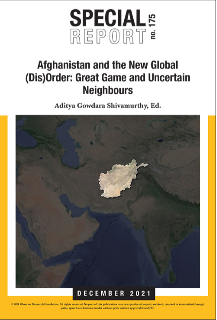
China’s abrupt U-turn on relaxing COVID-19 controls, which had been in place for nearly three years since the pandemic began in 2020, has overwhelmed the nation. The sudden relaxation of curbs has inundated the healthcare system and emergency services, where a shortage of blood and drugs has been reported. While there are anecdotal accounts of rising death tolls among senior citizens, and footage of funeral homes overflowing with bodies, with social media playing the role of the whistleblower, Chinese President Xi Jinping merely termed the current crisis as a “new COVID situation”. If China’s COVID policy was a disaster, then the sudden U-turn on the same is an even bigger disaster.
China’s mishandling of the COVID-19 pandemic and its sudden and chaotic reopening has put paid to the charade that China’s system is superior.
The Gordian knot
From the time the pandemic started in Wuhan, it was a tough situation to deal with. However, China’s initial success in curbing the spread of the virus at ground zero created a sense of hubris and fostered a notion that China’s prescription to combat the contagion was the right one. In retrospect, China’s strategy seemed to have gaping holes, but in the absence of free debate and a coopted scientific community, these follies were overlooked. For example, the emphasis on testing populations en masse looking for the virus meant that large sums were expended for prevention as opposed to for treatment. The expenditure on regular testing schemes was borne by local governments and required residents to undertake tests within regular intervals ranging from 48 hours to a week in some cases. The cost of testing people in China’s first- and second-tier cities which are home to more than 500 million amounted to
1.45 trillion yuan (US$218 billion) a year if tests were done every 48 hours, which amounted to 1.27 percent of China’s GDP in 2021. China opted to kickstart its
vaccination programme with getting people aged between 18 and 59 jabbed, perhaps in the belief that an immunised working-age category would kickstart the economy. Besides, the legacy of its one-child policy (now discontinued) has left China with a large elderly population, which in economic terms is not very productive and hence was cropped out of the calculations. This was at variance with the practice in other nations notably India where the priority was given to the elderly. This has subsequently made it very difficult for the authorities to encourage older people to get vaccinated. In December 2022, the state renewed efforts to fast-track its vaccination programme for senior citizens, setting a target to cover
90 percent of those above 80 years of age (numbering 36 million in 2020) with at least one dose by the end of January 2023. It has been three years since the pandemic and nations have accumulated experience and expertise in dealing with the contagion, yet the CCP chose not to learn from others and kept tying up precious resources in mass testing and centralised quarantine centres, instead of ramping up its healthcare system that could have been better equipped to deal with surging cases as China relaxed its COVID-19 curbs.
It has been three years since the pandemic and nations have accumulated experience and expertise in dealing with the contagion, yet the CCP chose not to learn from others and kept tying up precious resources in mass testing and centralised quarantine centres.
Rising anger against CCP
While the internal deliberations over the relaxation of its stringent COVID-19 of the CCP may never be known publicly, there are some indications that the ruling elite may have belatedly realised that the economic woes were transforming into a political crisis. The findings of a study commissioned by Peking University revealed the dire situation of the economy constrained by COVID-19 restrictions. Under the prevention measures in place, the study postulated that the proportion of joblessness in 2022 could reach the levels at the height of the 2020 Wuhan outbreak, estimating that the number of unemployed Chinese in mid-2020 could have been around
92.66 million—totalling nearly 12 percent of the working population. Rising unemployment was one of the factors for the Tiananmen Square uprising in 1989, and it still gives the CCP jitters. There has indeed been a pushback against the CCP’s autocratic nature from different groups over varied reasons as evidenced by depositors hitting the streets after their money in rural banks was blocked to student groups voicing their protest against the CCP’s repressive policies. The Chinese state’s response to these expressions of discontent has been befitting a tinpot nation not a second-largest economy and an aspiring global power. Bank depositors holding out
placards with signs “no deposits, no human rights”, “We are against Henan government’s corruption and violence” that were met with
vicious physical attacks on them, indicates a systemic ferment within China, and a nervous state that is reacting with increased repression. Even in the students’ protest of November 2022, China’s response to them was that they had been motivated by “hostile forces”, indicating that the CCP has completely misread the public mood. While economic priorities have belatedly figured on the CCP’s agenda as evidenced by the
Central Economic Work Conference held in December 2022 laying greater emphasis upon increasing incomes and improving the industry, it remains to be seen how China Inc will tackle challenges of absenteeism caused by China’s U-turn from its zero-COVID strategy and the resurgence of the contagion.
There has indeed been a pushback against the CCP’s autocratic nature from different groups over varied reasons
CCP holds up science to cover up its misdeeds
The more things change, the more they remain the same may be a cliché, but it applies to China. In the late 1950s, modern China’s founder Mao Zedong declared a campaign to eliminate birds, which he held responsible for crop damage. The unintended consequences of this campaign were that insects proliferated and destroyed food stock, contributing to a famine in which millions perished. There is a constant refrain in the West that China has moved away from Mao-era excesses and arbitrariness. China’s steadfast adherence to its zero-COVID strategy to combat the contagion that was termed as deadly till November and then China declaring that the virus had become less life-threatening shows that little of the Maoist capriciousness has changed. As in the past, the monopoly of science to suit a political objective and a political system that is based on the whims of one man, Xi Jinping, has hurt a billion. Above all, it has been argued by academics like Daniel Bell in his book ‘The China Model’ that the CCP has been successful because it is a political meritocracy, which in turn, translates into better governance and policies. China’s mishandling of the COVID-19 pandemic and its sudden and chaotic reopening has put paid to the charade that China’s system is superior.
The views expressed above belong to the author(s). ORF research and analyses now available on Telegram! Click here to access our curated content — blogs, longforms and interviews.



 China’s abrupt U-turn on relaxing COVID-19 controls, which had been in place for nearly three years since the pandemic began in 2020, has overwhelmed the nation. The sudden relaxation of curbs has inundated the healthcare system and emergency services, where a shortage of blood and drugs has been reported. While there are anecdotal accounts of rising death tolls among senior citizens, and footage of funeral homes overflowing with bodies, with social media playing the role of the whistleblower, Chinese President Xi Jinping merely termed the current crisis as a “new COVID situation”. If China’s COVID policy was a disaster, then the sudden U-turn on the same is an even bigger disaster.
China’s abrupt U-turn on relaxing COVID-19 controls, which had been in place for nearly three years since the pandemic began in 2020, has overwhelmed the nation. The sudden relaxation of curbs has inundated the healthcare system and emergency services, where a shortage of blood and drugs has been reported. While there are anecdotal accounts of rising death tolls among senior citizens, and footage of funeral homes overflowing with bodies, with social media playing the role of the whistleblower, Chinese President Xi Jinping merely termed the current crisis as a “new COVID situation”. If China’s COVID policy was a disaster, then the sudden U-turn on the same is an even bigger disaster.
 PREV
PREV


